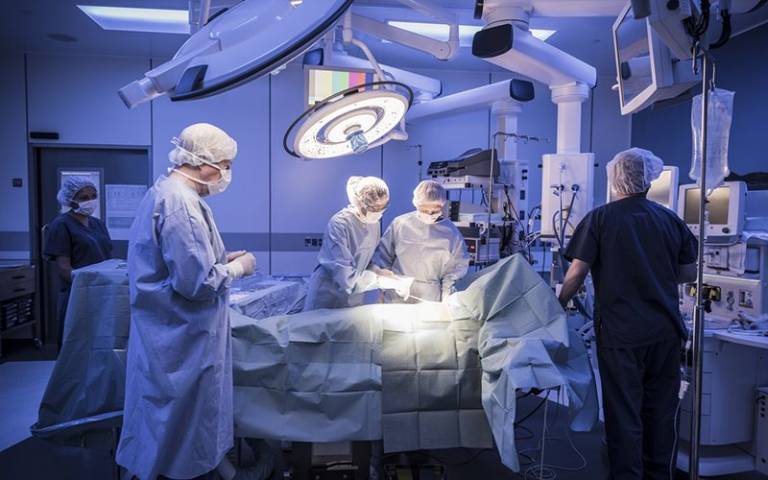Improvements to patient health through implantable cardiovascular devices
UCL researchers helped develop new medical devices that have improved cardiovascular healthcare worldwide. The two prosthetic devices have already treated more than 50,000 cardiopathic patients.

28 April 2022
Heart valve defects can often be resolved with surgery. Mitral regurgitation occurs when the heart’s mitral valve does not close properly and is one of the most common heart diseases, affecting approximately eight million patients across Europe and the USA.
A rigid ring or flexible ring can be implanted to support the valve, but both have limitations. Another condition – degenerative aortic stenosis – affects the aortic valve in older patients and requires valve replacement, often with open heart surgery.
Professor Gaetano Burriesci (UCL Department of Mechanical Engineering) used novel material technologies, smart structures, and advanced engineering approaches to develop new medical devices. He produced the first semi-rigid annuloplasty ring that combines the benefits of both the rigid and flexible rings currently in use.
The benefits of the device around the world
The device allows the three-dimentional physiological motion of the real mitral annulus whilst effectively reshaping the annulus conformation in the same way as a rigid device. This makes the valve repair durable by reducing the stress on the mitral annulus and valve leaflets.
The implant, developed in collaboration with Sorin Group SpA (now Corcym plc), was first patented in 2009 and applied to a new device with received CE marking in Europe and FDA approval in 2014. It is now used across Europe, the US and Japan.
Helping to cut costs and recovery time
Professor Burriesci also designed a minimally invasive sutureless heart valve replacement to treat people with degenerative aortic stenosis, a condition that affects about one in ten adults aged over 75. Previously, the operation required a long open heart surgery, which is particularly risky for older patients.
Together with the self-anchoring valve, Burriesci also designed a crimping device to load the valve into its delivery system. The compressed valve is delivered through the aorta and expanded once in position without the need for sutures, reducing surgery time from more than an hour to 30 minutes, with faster recovery times and reduced costs.
The devices have netted sales of approximately $115 million and are used globally in more than 300 cardiac centres in 34 countries.
David Heimansohn, M.D. (St. Vincent Heart Center, Indiana) said: "Since I began using the valve over three years ago, I have found that the use of Perceval is associated with a shorter procedure and recovery time, which allows patients to return back to their day to-day life more quickly."
Research synopsis
Improvements to patient health through implantable cardiovascular devices
The work from researchers at UCL’s Mechanical Engineering Department has led to two new medical devices that have improved cardiovascular healthcare worldwide. The two prosthetic devices – a semi-rigid ring for the repair of leaking heart valves (mitral annuloplasty) and a sutureless artificial heart valve – have already been used to treat more than 50,000 cardiopathic patients, improving health and quality of life.
Project team: Professor Gaetano Burriesci
Links
- Professor Gaetano Burriesci's academic profile
- UCL Department of Mechanical Engineering
- UCL Faculty of Engineering Sciences
- UCL Faculty of Engineering Sciences REF 2021
Image
- Image credit: iStock / JohnnyGreig
 Close
Close

